- Home
- Brian S. Wheeler
Keepers of the Automata
Keepers of the Automata Read online
Keepers of the Automata
Brian S. Wheeler
Thank you for your purchase of this ebook. This ebook remains the copyrighted property of the author and may not be reproduced, scanned, or distributed for any commercial or non-commercial use without permission from the author. Quotes used in reviews are the exception. No alteration of content is allowed. If you enjoy this ebook, please consider leaving a review with your favorite distributor of ebooks, or email the writer at [email protected]. Unless otherwise instructed, Brian Wheeler reserves the right to post such reviews online.
Your support and respect for the property of this author is appreciated.
This book is a work of fiction and any resemblance to persons, living or dead, or places, events or locales is purely coincidental. The characters are productions of the author’s imagination and used fictitiously.
Copyright © 2016 by Brian S. Wheeler
For Kate.
Contents
Other ebooks by Brian S. Wheeler
Chapter 1 – Putting a Dent in Things
Chapter 2 – In the Shop
Chapter 3 – Messy, Inefficient and Painful
Chapter 4 – Earned Rewards
Chapter 5 – A Strange Story and a Bold Request
Chapter 6 – Screaming Out of the Dreams
Chapter 7 – A Silenced Typewriter
About the Writer
Visit Flatland Fiction online for other stories by Brian S. Wheeler
If you enjoyed this story, please consider purchasing one of the following novels available at your favorite distributor of ebooks. Flatland Fiction welcomes your feedback at [email protected].
Mr. Hancock’s Signature
The dead walk in Monteray. The corpse of a nearly forgotten farmer named Hancock arrives via train. Ian Washington remembers Mr. Hancock and vows to return the body home. Yet Mr. Hancock's body will not rest while Ian works to reopen a cemetery, and the corpse found each morning upon the doorstep forces the town to choose between the isolation of their fear or the hope of their fellowship.
The Sisters Will Dance
Blaine Woosely claws his way back to the living. He has cleaned his blood of his addiction, and an unexpected, family farm home rewards his efforts. Only the country acres isolate Blaine when a sharp-toothed monster hunts to bring Blaine back to the dark. The sad history of Blaine's blood brings magic to the country home's new master, but in the end, only Blaine himself can break his chains.
Fallen Stardust
A boy, an outcast and an alien must find salvation in a world of ruin. Samuel must find a medicine to cure the fever ravaging his village. Markus must find the motive that murdered those he loved. And an angel must find a future in a city crumbled into debris. But something lurks beneath the wasted world, and waking it may doom what little of humanity survives.
The Light Floats Slowly
Hugh Simms looks to find hope amid the stars when he fails to find any on Earth. Heartbroken by the loss of his only love, Hugh loads his great spaceship with ash and glass before launching his Starchaser into the cosmos. Miraculously, that spaceship finds an alien civilization in the vast dark, and Hugh might deliver that civilization the salvation he failed to deliver to the Earth.
Vanity and Stars
Rise to grasp new worlds, and fall with the tragedy of human and alien frailty. These ten stories underline the potential seeded throughout the galaxy, while never denying that humankind’s flaws will surely tarnish the stars. With the vain and the foolish, buckle into the rocket seat and hold a breath while the cosmos unfolds.
Keepers of the Automata
Brian S. Wheeler
Chapter 1 – Putting a Dent in Things
It was a code orange day, and Bryce Munson’s skin already itched in the sunlight as he stood before the polished glass of the firearm vending machine and struggled to determine what gun among all the possibilities would best serve his purpose. The sun burned its harshest on the days when the public climate signs warned of orange dangers. Orange dangers meant there was not a cloud in the sky to protect one’s skin from the sun’s radiation, so that even limited exposure burned the back of one’s neck. He wished he knew which gun he required, but none of those weapons whispered to him within the vending machine. Bryce lacked experience with even the most rudimentary of weapons. How would he know what ammunition he needed to purchase for whatever weapon he collected? How would he learn to load whatever gun he might choose? Would he need to clean the gun before discharging it? Bryce again wished he was a much more average type of man, a man with confidence, a man who didn’t feel weak and strange while standing before a common firearm vending machine.
A broad-shouldered man with a face covered in a long, unkempt kind of beard fashionable among the males of that year cleared his throat. “Excuse me, mister, but are you planning to take much longer? I’m starting to feel the sun gnaw my skin.”
“Forgive me,” Bryce stammered. “Please step on ahead.”
Bryce stepped aside so that the gentleman could approach the vending machine. Bryce watched the man’s fingers confidently punch at the vending machine’s numeric keypad. That man didn’t waste a minute. That man knew exactly what he needed. It took no time before the vending machine’s internal mechanisms fastened upon the firearm, removing it from the display and setting it within the retrieval tray. The man smiled as he pulled his gun from the machine, taking a moment to peer down its barrel, as if somehow gauging the craftsmanship’s quality.
Bryce summoned his most courageous voice as the man removed bullets from his denim coat and loaded them into his firearm.
“Sir, would you mind if I asked you something?”
The man grinned. “Oh, not at all, citizen. I can tell you’re not accustomed to using a firearm vending machine. Would you like a little help or advice?”
“I would. I’m ashamed that I’m having so much trouble choosing a gun.”
The man winked. “No need to feel ashamed. Why, you’re taking the time to learn now, and I’d be proud to help a citizen like yourself purchase a vending machine gun. It’s your first time, isn’t it?”
“It’s that evident?”
The man laughed. “Don’t worry. We all have a first time. Tell me, do any of those guns behind that glass attract your eye?”
“Not at all. They all look alike to me. I hardly know how to tell one apart from another.”
“Do you know what you might want to use one of those firearms for?”
Bryce paused. He didn’t know if it would be wise to inform that stranger of his intentions.
“Say no more,” the man held up his hand. “It was rude of me to ask. Why, you’d think I’ve never before helped a fellow citizen at one of these vending machines. However you might want to use one of those guns is entirely up to you. I know enough to suggest a gun right for you.”
The man nodded and pointed to a small gun located in an upper corner of the vending machine’s display. Bryce would never have noticed that weapon had the man not directed his eyes to the exact location that small gun possessed upon the grid of firearms.
“Seeing that this is going to be your first piece, let me suggest you purchase the ‘Earl’ model of gun, a very popular firearm for beginners. It already comes out of the vending machine loaded with a single round, so you don’t have to worry about matching it with the proper kind of ammunition. And after you fire the gun, you simply throw it away in the nearest trash can, so you never have to concern yourself with cleaning and keeping it. Some folks might snicker and say that the ‘Earl’ isn’t going to strike much fear into anyone. But I say that arming yourself with any kind of a gun is a much stronger deterrent than not arming yourself with nothing. Besides,
having a little time to learn how to handle the ‘Earl’ really helps soothe the anxieties people new to guns are going to have. You’ll see, citizen. You’ll have a much easier time of choosing your gun the next time you need to use one of these vending machines.”
Bryce felt elated. He thanked the man, and the stranger kindly stood at Bryce’s side as Bryce tapped the proper numbers into the vending machine’s keypad. The internal mechanisms whirled and dropped the small gun into the retrieval tray, and the stranger even stayed to show Bryce the best way to grip the little ‘Earl.’
The man showed Bryce how to fasten the small gun into the back of his waistband before hurrying out of the code orange sunlight. With his new gun hidden beneath his sun-sheltering jacket, Bryce took long, confident strides down the crowded sidewalk as he made his way to the bookstation. He hadn’t been sure if he would succeed in following through with his intentions that morning, especially when he woke to the alarm informing him he faced a code orange day. Arriving before the vending machine, Bryce had worried he would’ve slumped and turned back home without so much as obtaining a gun. Yet a stranger had helped him, and now his goal didn’t feel so daunting. With a stranger’s timely assistance, his purpose felt a bit ordained. Bryce didn’t think he would need more than one shot. He didn’t intend to hurt anyone. He only wanted to inform his fellow citizens of the injustices that plagued him, of the injustices that short-changed them all. A single shot from his ‘Earl’ gun would surely be enough to start the gears that must move in order to reform the terrible enterprise of modern day book-selling.
The crowd thickened as Bryce approached the bookstation’s gleaming glass entrance. Lines of excited readers snaked out into the street from the bookstation, for not even a code orange day could dissuade so many customers from standing in the sunlight while waiting for a turn to come before the automaton writers and receive a new paperback book. Bryce smiled and took a position in the back of a line. He had chosen that day for his spectacle, knowing that especially large crowds always gathered on the days following an update to the automata’s artificial intelligence circuits. Readers always crowed the bookstations on those days, for the first paperbacks scribed from the writing robots in the wake of any update were considered valuable collectibles, treasured keepsakes for any library. Before Bryce tired of all the algorithms and formulas responsible for the automatas’ writings, he himself had amassed an impressive collection of stories penned by those robots. But any thrill the automata’s books ever offered Bryce vanished a long time ago. Those stories now gave him only disappointment, and resentment. No matter how many artificial intelligence updates the automata might ever acquire, Bryce believed those robots would never escape the templated plots, characters and settings that made each story feel so dull to him. Bryce wondered as he stood beneath a code orange sun why none of his fellow citizen readers ever seemed to notice that every bookstation offering was but a rehash of the tale that came before.
“Sir, please state your preferred book genre.”
Bryce smiled at the elderly man wearing the clouded glasses who sat within the bookstation’s ticket booth. He seemed to be the only human employed at that station, and Bryce dreamed that old man might’ve first been employed in that bookstation in the years just before the automata’s arrival, when customers were expected to invest the effort of conducting their own searches through stacks of books for whatever story might on any particular day speak best to their imaginations. Bryce dreamed that the old stories must’ve been more powerful, for somehow they needed to reach out to customers in those days before the robots. He thought the stories sold in those old times might’ve lacked the polish supplied by the automata, but Bryce suspected the old tales possessed greater inspiration.
The line pressed at Bryce’s back. The sun was hot. Customers sweated in the sun. Their skin burned in the harsh sun. Everyone grumbled with impatience. Yet Bryce would make them wait. He would ask the ticket taker his question, and he would force that old man to consider him. Bryce refused to become simply a cog in the industry of the bookstations.
“I’d like to hear my choices.”
The man’s gray and thick eyebrows contorted in frustration. “Seriously?”
“Seriously,” Bryce winked. “I’m thinking about jumping over to a new genre…”
“But people rarely ever do that, sir.”
“Maybe. Maybe.” Bryce nodded. “Only, I think I’d be wasting my opportunity if I don’t try to at least sample from all the genres. I really want to give the automata the appreciation they deserve.”
The old man’s shoulders slumped as a dissatisfied murmur lifted from the line, and he mumbled the possibilities available to Bryce.
“The automatas offer thrilling fiction in the following categories – children’s, young adult, romance, western, mystery, horror, science fiction and fantasy. The automata’s powerful artificial intelligence systems imagine on a scale never before achieved in the history of book-selling. No two books are ever the same. No matter how many times a reader visits their kiosks, the automata always supply each customer with a customized story.”
Bryce rubbed his chin. The elderly man in the ticket booth always fed him the same bookstation slogan, but Bryce never believed it. He recognized so easily how all of the automata’s stories were the same, regardless of how character names and adventure locales changed.
“Does the bug-eyed alien still write the science fiction stories?”
The old man sighed. “You’re talking about Gorn. That automaton continues to provide science fiction in all of the bookstations. Just as Gorn has done for the last thirty years.”
“I think that’s the robot I want to see,” Bryce clapped his hands.
The man quickly shoved a ticket at Bryce through his booths’ slot and shooed Bryce further down the line so that he could tend the needs of others who fidgeted beneath the hot sun. Bryce took a steadying breath as he approached the bookstation’s double doors, and his hand felt for the assurance offered by that small gun kept beneath his jacket.
Bryce’s skin tingled in the bookstation’s cool air. The interior of each of the city’s many bookstations was a cacophony of color. Tables and counters shuddered beneath the weight of the merchandise offered to those waiting to arrive before the automata. Customers could purchase posters and calendars brimming with the colorful characters found in any of the automata’s novels. Boxes of notebooks, writing journals and letterhead branded with the faces of the automata’s most famous characters were offered to every guest who thought he or she might spend a bit of time penning thoughts inspired by the works of the great robotic writers. For a meager price, customers might purchase battery-powered, plastic figurines of the famous automata, each containing recorded voices that spoke pithy words of encouragement whenever a person might feel sad. The bookstations sold porcelain coffee mugs decorated with the image of one’s favorite, writing robot. There were purses, shirts, diapers and lunchboxes. There were board games, puzzles, jewelry and reading lamps. All of the merchandise bore an image or slogan of the worlds the automata offered, and it was a very rare customer who moved through the lines without grasping an offered piece of merchandise to take home with whatever paperback they acquired that day in the bookstation.
Bryce, however, saw what remained missing amid so much space crowded with the knickknacks sold by the bookstation franchise. He saw that there were no couches upon which a customer might loiter long enough to scan the opening pages of a handful of books before choosing what title best deserved his or her coin. He counted no comfortable, leather chairs in which a person might enjoy opening chapters while sipping at a cup of steaming coffee. There were no tables around which friends might gather to share insight into moving, or puzzling, works of creative words. Bryce saw that the bookstations left no space for any kind of idle enjoyment. Each inch of the bookstation was dedicated to the sell. Each inch of space was devoted to the science of efficiently moving that line of consumers towards those
robotic kiosks.
Every bookstation scattered throughout the nation possessed the same set of automata. The franchise didn’t commit the slightest change in automata decoration or design without studying the mountains of market data which birthed every parameter and variable tossed into the automata’s artificial intelligence. The slightest change in skin tone could send ripples through the buying market. The smallest, unplanned decoration on any automaton’s wardrobe could plummet franchise stock. And all eight automata stood in the rear of every bookstation. All eight stood in the same slight arc, so that the lines of customers that formed in one bookstation moved no differently than the lines assembled in any other store.
At the far left of that arcing line stood the automaton named Freddy Fox, who used his trademarked, yellow feather while scribing children’s stories on oversized pages for the boys and girls who giggled and jumped in front of his kiosk. Of all the automata, only Freddy the Fox served also as an illustrator, sketching with his yellow feather wonderful pictures of dolphins, panda, giraffes and puffins in every story he scribed. The softest kind of synthetic fur covered Freddy’s face, and the children loved to stretch their hands and pinch at the fox’s whiskers, which swayed as that automaton wrote his stories of friendship frogs and sharing owls. Bryce could forgive the children for falling so passionately for the same story over and over again, but he didn’t understand why mothers and fathers forever fawned over the glossy pages Freddy Fox’s kiosk presented to their children in exchange for a ticket.
The spectacled and grinning automaton named Jackie Luebbers stood to the right of Freddy Fox. Metallic braces crowded her teeth, but Jackie Luebbers always smiled. That automaton giggled whenever her pink pen with the sparking, purple sequins travelled across the college-ruled pages of her unicorn notebook. In careful cursive, Jackie wrote tales of senior prom dances, of first kisses, big basketball games and all kinds of dangers that invaded every party the teenagers threw while their parents were away on holiday. If a teenage girl gave her ticket to the robotic Jackie, then that automaton wrote a book with a female protagonist, who in the second-to-last chapter always removed her headgear and acne cream to show her transformation into a butterfly of a woman. If a boy supplied the ticket, then a young man always lifted an athletic trophy of some kind in Jackie’s final chapter, with the girl for whom he always pined draped upon his arm. Bryce felt the urge to vomit whenever he saw some young lady or man skipping down the street with a badge proclaiming membership in Jackie Luebbers’ fan club pinned to his or her chest.
The automaton seated next in that arc of robots dressed in purple robes covered in golden, stitched stars, with a cone-shaped hat stretching from the automaton’s head. The bookstation franchise called that robot with the rainbow-colored eyes burning beneath bushy, white eyebrows Magpie the Sage, the mechanical teller of fantasy and adventure, who filled his pages with Elven lore and mighty dragons, with ghost armies and leaning towers filled with arcane spell books. Of all the automata, old Magpie took the longest time to pen a novel in exchange for a customer’s ticket, for that robot would first inhale from his pungent pipe and blow smoke rings before slowly moving his writing wand across his stack of vellum paper. Strong letters of a bold, serif font appeared to express that robot’s offering, and a great horn blared each time Magpie’s kiosk ejected a paperback to an applauding customer.
But Bryce failed to understand how that bearded robot cultivated such a devoted following of readers. Did no one but him notice how the hero always found his or her magical weapon in the exact middle of chapter three? Did no one else realize how the villains always dressed in black, or how a joking, half senile wizard always offered the hero guidance in chapter five? Bryce wondered if something in that automaton’s pipe smoke distracted the robot’s fans from recognizing that all of Magpie the Sage’s books followed the same plot.
Magpie the Sage’s smoking pipe perhaps provided the greatest of any of the automata’s tricks, but none of the robots were more beautiful and attractive than the light-skinned vampirette whose round breasts pushed through a very thin, low cut gown. Fans of the horror genre offered their tickets to that robot with the emerald eyes and the red hair called Mary Hecate. The publishers and marketing managers gathered in the franchise’s home offices found in their piles of data that nothing helped sell stories of serial killers, murdering clowns and bellowing demons more than sex, and the creators of Mary Hecate bathed that automaton in lust. Mary’s long eyelashes blinked coyly at the customers who handed her their tickets, and she always slid that ticket between her breasts before puckering her plump lips. Then Mary pricked her finger with a sharp letter opener and wrote her story in the little letters inked by her synthetic blood. Mary Hecate’s hourglass figure appeared on the cover of every one of her books – gripped in a monster’s claws, or mesmerized before the fangs of a demon lover.
Mary Hecate’s latex body oozed sex, but the next automaton in line took second place to no one when it came to composing books populated by characters locked together in amorous embraces. The fifth automaton went by the name of Val Carrington, and that robot of romance fiction always attracted the longest lines of excited ticket holders. While Mary’s sex appeal teetered towards the vulgar, Val Carrington possessed an allure of sophistication. She wore a trim, red business jacket, tastefully accessorized by a glimmering strand of pearls. Val’s diamond earrings helped turn the flecks of gray in her otherwise brown hair into sparkles. And perhaps no individual feature on any of the other automata was as famous as Val’s thick, red glasses – sold so readily at every bookstation merchandising counter. A very sophisticated type of artificial intelligence ran through robot Val’s mind to allow that automata to engage in banter with the customers who watched her delicate hands trip across the plastic keys of her typewriter. Val crafted stories of shirtless men in denim pants and cowboy boots that made every woman in her line swoon. Bryce hated that automaton for never feeling the slightest pinch of writer’s block. What would that automaton know of despair, or of loneliness? Among all of the bookstations’ tight, genre boxes, none fit a neat outline better than Val Carrington’s romances.
Val Carrington’s mechanized face occasionally peeked up from her plastic typewriter to say something clever to the automaton in the raincoat and fedora next in the robotic line. Val might wink and say something like “How are you feeling today, Joe?” or “Your office sure looks hopping with business today, Joe.” And robotic Joe Spade would respond with something like “Val, crime never sleeps in these city streets” or “Val, a sore body’s always better than a dead body.” Those in the lines of those automata would laugh. They would roll their eyes in amazement of the machines who so easily shared conversation.
The engineers and artists who constructed the automaton that wrote the bookstations’ mystery paperbacks appeared to have carved Joe Spade’s square-chinned face from granite. A shadow of beard stubble always darkened Joe’s chiseled features, and Joe’s wide shoulders loomed restlessly behind the old typewriter perched upon his metal desk. A battered filing cabinet stood over Joe’s right shoulder, from which the robot would retrieve a manila folder after given a ticket for a new story. Joe Spade would carefully consider the pages in that case file before his thick fingers pounded on his typewriter’s glass keys. The robot’s eyes locked on the page, and Joe grunted while he hammered out tales of marital jealousies, drug-addled minds, con games, espionage and gang wars – all guaranteed to please the clients who came to his kiosk to watch his fists attack the typewriter to provide mystery thrillers filled with all the clichés that made Bryce grimace.
The next automaton never bothered to drag a pen across paper or tap the keys of a typewriter. The robot named Gary Tate preferred to lean back in his big, leather chair and simply tell the customers who came to his kiosk for a western story an exciting overview of the adventure his station’s internal printing mechanisms prepared in exchange for a ticket. Gary Tate provided stories of outnumbered cavalry officers.
He wrote of brave pioneers pushing through the desert with little more than a plow and a rifle with which to plant a new nation. He wrote of lonely marshals who hunted bloodthirsty killers across mesa mountains, and of the young gunfighters who drew iron from their hips when high noon lifted over a small, dusty town. Gary Tate’s stories of brothels and saloons provided the closest thing to national history those frequenting the bookstations would ever read, and it was natural for a people living in such a complicated world to pine for simpler times Gary Tate’s stories suggested existed so many decades lost. Singing cowboys never felt the hurt of a stray bullet in Gary Tate’s pages. Loyal horses never died from heat exhaustion. In Gary Tate’s fictional world, only the wicked suffered pain, and every man or woman who clipped a gun upon his or her hip might find the opportunity to become a hero.
Bryce’s blood heated with anger when he glimpsed the bug-eyed alien that occupied the final spot in the bookstation’s robotic gathering. His hand floated to that gun pressed to the small of his back.
“I mean to tell you, Stan, I just don’t see how Jupiter Jackson is going to get out of the mess he’s in at the end of the second book in my Battle Seer trilogy. I don’t know how it is in the trilogy Gorn is putting together for you, but Jupiter Jackson is in one hell of a predicament in my books.”
“He’s in terrible shape at the end of my second book of the War Wizard series as well, Lee. But isn’t it the suspense between the second and third books what keeps us coming back for more? I tell you, Lee, there’s no guessing how Jupiter’s going to escape the Legions of the Gravity Crush in my book.”
Lee grinned. “And I don’t know how Jupiter Jackson is going to escape the Army of the Black Hole in mine.”
“Are you two serious?” Bryce blurted. “Do the two of you really have no guess, nor the slightest expectation, of how Jupiter Jackson’s going to escape whatever prison he’s in at the end of your books?”
“How did you know he was in prison?” Lee and Stan asked as if they shared a single mind.
“He’s always in some kind of prison at the end of book two,” Bryce sighed. “I can’t believe neither of you see how Jackson will jump out of the danger.”
“And you do?” Stan asked.
“Well, yeah. I do.”
Lee laughed. “I’d like to hear your guess then.”
Bryce was very happy to answer. Gorn, the bug-eyed alien of the automata waited at the end of that line, rehashing his trilogy plots over and over again to feed the readers who hungered for his tepid fare. The small details – the names of ships, the gender of the villains, the color of planets – might change at the start of every customer’s customized trilogy, but Bryce knew Gorn hadn’t modified his plot in over a decade.
“I can count the possibilities on one hand,” Bryce continued. “Gorn might give Jupiter Jackson a new outfit to serve as a disguise, or perhaps Gorn will provide our hero with some kind of gadget. Maybe Jupiter’s love interest once more happens to be one of his captors, and maybe that love interest releases him again out of the goodness of her heart.”
Lee smiled. “So you admit it.”
“Admit what?”
Stan pointed his finger at Bryce. “You just told us that you don’t know how Jupiter Jackson is going to escape. You don’t know how the third book is going to open any better than we do.”
“I’m telling you that those are going to be the only possibilities.”
“But we don’t know which one Gorn might choose,” said Lee, “and there’s no telling what Gorn might write following last night’s updates to his artificial intelligence.”
“Oh, I think there is,” Bryce moaned.
Stan’s eyes narrowed. “Say, mister, why are you standing in this line if you’re so unimpressed by Gorn’ stories?”
“Oh, the two of you are going to see my reason real soon.”
Bryce pushed his hand back to the handle of that small gun hidden beneath his jacket. The line soon shifted, and Bryce stepped up to the automaton he hated most among all of the bookstation’s robots.
He handed his ticket to Gorn, and the automaton greeted Bryce with a babble of chirping noises programmed to emulate some kind of extraterrestrial language. A grasshopper appeared to be the inspiration for Gorn’s rubber face. Six antennae waved in the air as Gorn’s mandibles clicked together to accentuate its chirping as the robot raised one of its twelve fingers to salute Bryce. Gorn’s eyes were the automaton’s most predominate features, gathered into a cluster of mirrors on either side of the Gorn’s face, each shining surface reflecting Bryce’s image into tiny doppelgangers. In addition to Jupiter Jackson, Gorn’s popular characters included Indigo Starlight, Zeon Hellride, Sir Nigel the Timeshifter and Bruno Clone Seven, all of who’s adventures unfolded in the tight arc of trilogy sets sold as favorite commemorative bundles during each holiday shopping season. Gorn’s stories brimmed with light-jumping space fighters that darted from one space dogfight to another. Gorn wrote science fiction novels filled with bikini-clad aliens and fascist, interplanetary dictators. Gorn’s words painted the fizzle of laser cannons and the sheen of gleaming, metallic spacecraft.
Gorn’s artificial intelligence crafted masterful pulp fiction, but Bryce despised everything that automaton offered. Gorn wrote books filled with flash but empty of substance. That robot flooded the world with cheap, mechanical prose so that there was no room for anything Bryce might dream. And thus Bryce withdrew that small gun from the back of his jacket and pointed its tiny barrel at all the tiny mirrors that composed the alien’s eyes.
Stan chuckled at Bryce’s back. “Say, mister, you’re not holding much of a gun.”
Bryce thought about responding. He thought about telling Stan and Lee that he had been told there was nothing at all wrong, or weak, about the small gun lifted in his hand. But Bryce remembered that his moment was not about such an argument. His moment was about proving a greater point. It was about releasing all the timid minds crowding the world from the dreams of machines. It was about forcing the people of his world to open their eyes and see how they were time and again tricked into the purchase of so many special, hardcover editions of their favorite robotic paperbacks. Bryce shook his head, and then he pulled his gun’s trigger.
The gun recoiled as it discharged its bullet, and Bryce’s thumb winced for the way the power of that round bent it back towards his wrist. But the gun hardly echoed at all. Its roar was weak, and not a trace of fire or smoke billowed out from the short barrel. The bullet struck Gorn square in the center of the robot’s many eyes. Bryce sighed. Gorn’s features didn’t explode into a million fragments. Not a single alarm shrilled in the bookstation. Those in the lines of their favorite fictional genres merely shuffled another step or two forward.
“I say, mister, that was unacceptable.”
Stan was the one who growled, but Bryce flinched when he turned and looked into the barrel of the gun Lee centered on his forehead.
* * * * *

 Polish, Dust and Sparkle
Polish, Dust and Sparkle Old Hunters on the New Wild
Old Hunters on the New Wild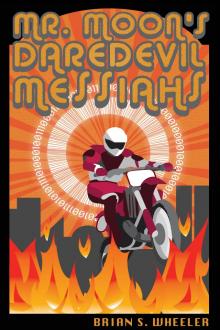 Mr. Moon's Daredevil Messiahs
Mr. Moon's Daredevil Messiahs Opus Wall
Opus Wall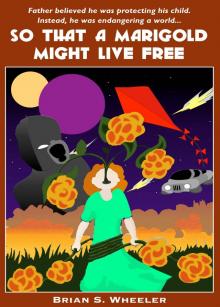 So That a Marigold Might Live Free
So That a Marigold Might Live Free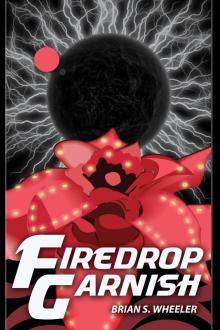 Firedrop Garnish
Firedrop Garnish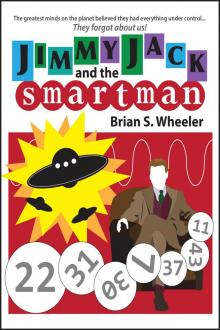 Jimmy Jack and the Smartman
Jimmy Jack and the Smartman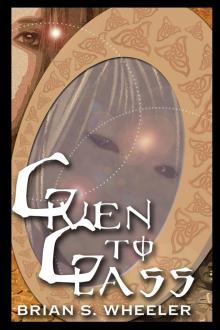 Given to Glass
Given to Glass The Sirens' Last Lament
The Sirens' Last Lament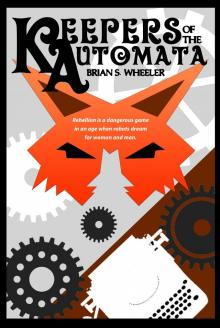 Keepers of the Automata
Keepers of the Automata The Warden's Mark
The Warden's Mark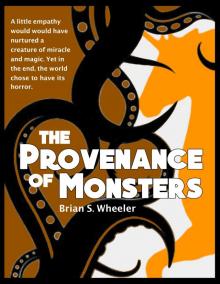 The Provenance of Monsters
The Provenance of Monsters Cat-Tooth Magic and Dog-Eared Miracles
Cat-Tooth Magic and Dog-Eared Miracles Heritage and Shimmer
Heritage and Shimmer Words Burned to Flame
Words Burned to Flame Harpies of Planet Sutherland
Harpies of Planet Sutherland The House on Maple Street
The House on Maple Street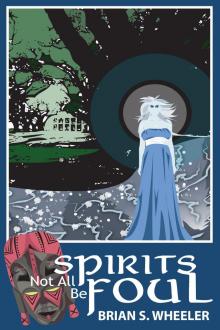 Not All Spirits Be Foul
Not All Spirits Be Foul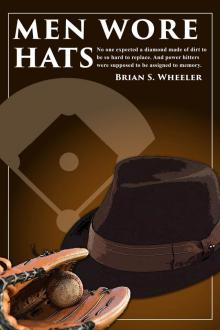 Men Wore Hats
Men Wore Hats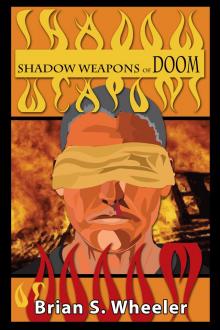 Shadow Weapons of Doom
Shadow Weapons of Doom Glorious Gardens of Teetering Rust
Glorious Gardens of Teetering Rust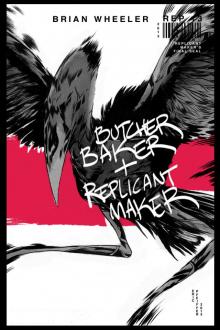 Butcher, Baker and Replicant Maker
Butcher, Baker and Replicant Maker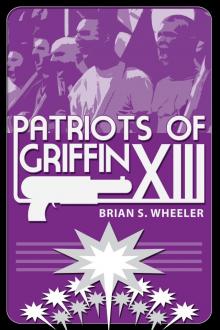 Patriots of Griffin XIII
Patriots of Griffin XIII Bones in Daylight
Bones in Daylight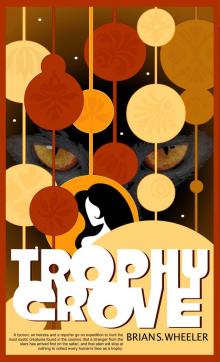 Trophy Grove
Trophy Grove Grandchildren Returning Their Spoils
Grandchildren Returning Their Spoils Floating the Balloon Bombs
Floating the Balloon Bombs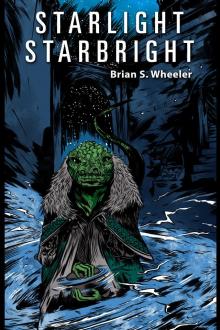 Starlight, Starbright
Starlight, Starbright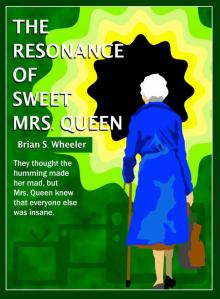 The Resonance of Sweet Mrs. Queen
The Resonance of Sweet Mrs. Queen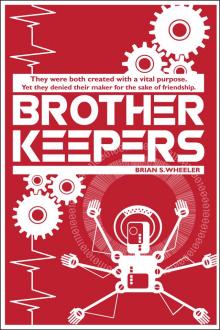 Brother Keepers
Brother Keepers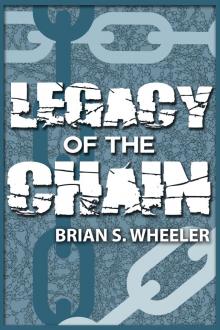 Legacy of the Chain
Legacy of the Chain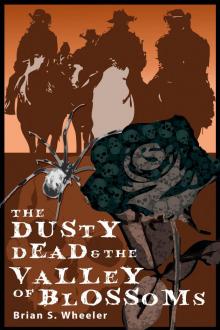 The Dusty Dead in the Valley of the Blossoms
The Dusty Dead in the Valley of the Blossoms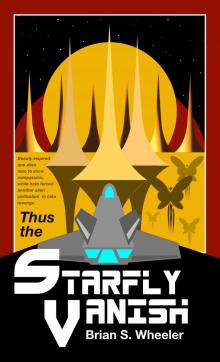 Thus the Starfly Vanish
Thus the Starfly Vanish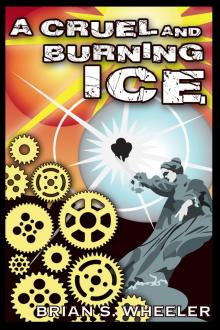 A Cruel and Burning Ice
A Cruel and Burning Ice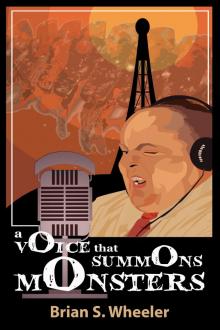 A Voice That Summons Monsters
A Voice That Summons Monsters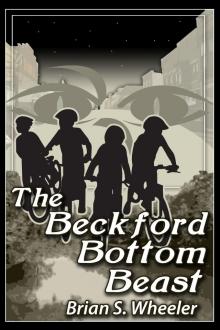 The Beckford Bottom Beast
The Beckford Bottom Beast The Llungruel and the Lom
The Llungruel and the Lom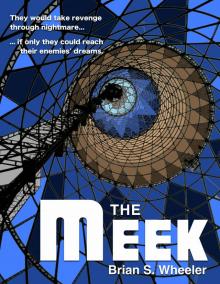 The Meek
The Meek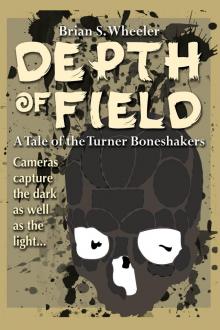 Depth of Field
Depth of Field Mary, in Need of Belle
Mary, in Need of Belle Memory, Light & Medicine
Memory, Light & Medicine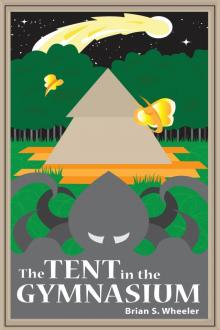 The Tent in the Gymnasium
The Tent in the Gymnasium Rooms Without Furniture
Rooms Without Furniture A Handicap of Shades
A Handicap of Shades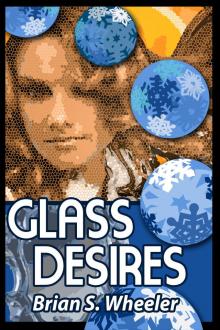 Glass Desires
Glass Desires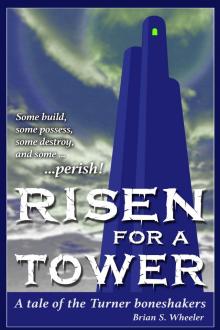 Risen for a Tower
Risen for a Tower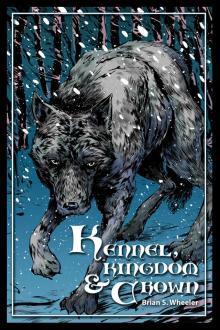 Kennel, Kingdom and Crown
Kennel, Kingdom and Crown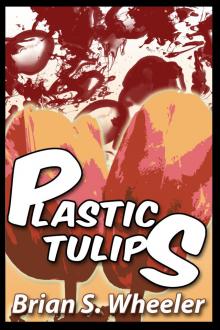 Plastic Tulips
Plastic Tulips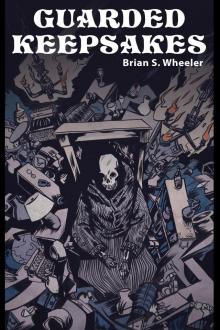 Guarded Keepsakes
Guarded Keepsakes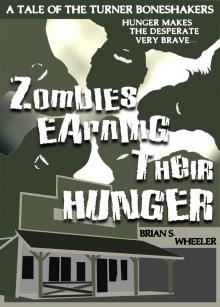 Zombies Earning Their Hunger
Zombies Earning Their Hunger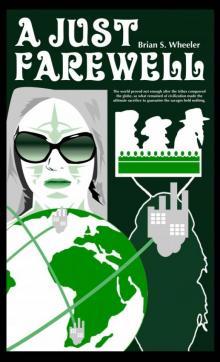 A Just Farewell
A Just Farewell